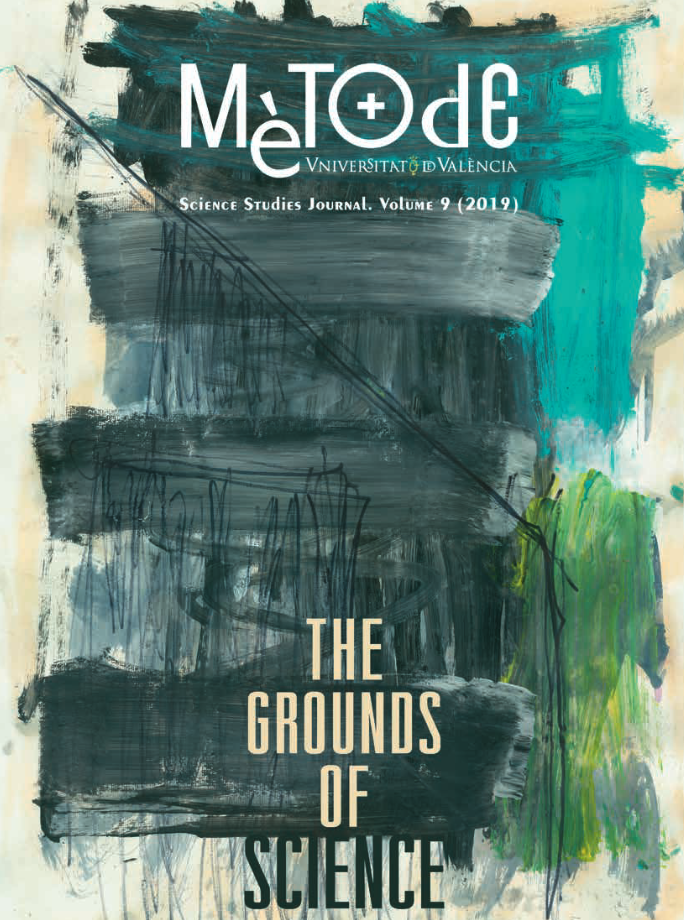Social networks and robot companions: Technology, ethics, and science fiction
DOI:
https://doi.org/10.7203/metode.9.12479Keywords:
social networks, assistive robotics, ethics, science fiction, science and humanities Abstract
Abstract
Information technologies have become part of our everyday lives and are increasingly acting as intermediaries in our workplaces and personal relationships or even substituting them. This growing interaction with machines poses several questions about which we have no previous experience, nor can we reliably predict how they will influence the evolution of society. This has led to the convergence of technoscience and humanities in an ethical debate that is starting to bear fruit, not only with the setting of regulations and standards, but also with educational initiatives in university teaching, professional improvement, and the conformation of public opinion. Interestingly, science fiction often plays a prominent speculative role in highlighting the pros and cons of potential scenarios.
 Downloads
Downloads
 References
References
Bearne, S. (2016, 14 September). Plan your digital afterlife and rest in cyber peace. The Guardian. Retrieved from https://www.theguardian.com/media-network/2016/sep/14/plan-your-digital-afterlife-rest-in-cyber-peace
Hunt, E. (2016, 24 March). Tay, Microsoft’s AI chatbot, gets a crash course in racism from Twitter. The Guardian. Retrieved from https://www.theguardian.com/technology/2016/mar/24/tay-microsofts-ai-chatbot-gets-a-crash-course-in-racism-from-twitter
Lin, P., Abney, K., & Bekey, G. (2011). Robot ethics: The ethical and social implications of robotics. Cambridge, MA: MIT Press.
Swain, C. (2007). Designing games to effect social change. In A. Baba (Ed.), Proceedings of the 2007 Digital Games Research Association Conference (pp. 805–809). Tokyo, Japan: Digital Games Research Association.
Torras, C. (2008). La mutació sentimental. Lleida, Spain: Pagès Editors.
Torras, C. (2016). Service robots for citizens of the future. European Review, 24(1), 17–30. doi: 10.1017/S1062798715000393
Torras, C. (2017). Enxarxats. Barcelona: Males Herbes.
Torras, C. (2018). The vestigial heart. A novel of the robot age.Cambridge, MA: MIT Press.
Veruggio, G., Operto, F., & Bekey, G. A. (2016). Roboethics: Social and ethical implications of robotics. In B. Siciliano, & O. Khatib (Eds.), Handbook of robotics, 2nd edition(pp. 2135–2160). Berlin-Heidelberg: Springer.
Von Ahn, L., & Dabbish, L. (2008). Designing games with a purpose. Communications of the ACM, 51(8), 58–67. doi: 10.1145/1378704.1378719
Wu, M. (2012, 15 September). My chapter on influencers. Lithium Community. Retrieved from https://community.lithium.com/t5/Science-of-Social-Blog/My-Chapter-on-Influencers/ba-p/8213
Downloads
Published
How to Cite
-
Abstract1711
-
PDF667
Issue
Section
License
![]()
All the documents in the OJS platform are open access and property of their respective authors.
Authors publishing in the journal agree to the following terms:
- Authors keep the rights and guarantee Metode Science Studies Journal the right to be the first publication of the document, licensed under a Creative Commons Attribution-NonCommercial-NoDerivatives 4.0 International License that allows others to share the work with an acknowledgement of authorship and publication in the journal.
- Authors are allowed and encouraged to spread their work through electronic means using personal or institutional websites (institutional open archives, personal websites or professional and academic networks profiles) once the text has been published.





